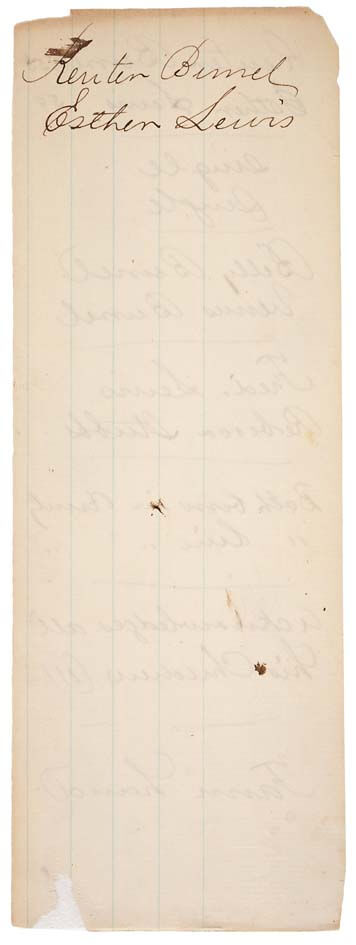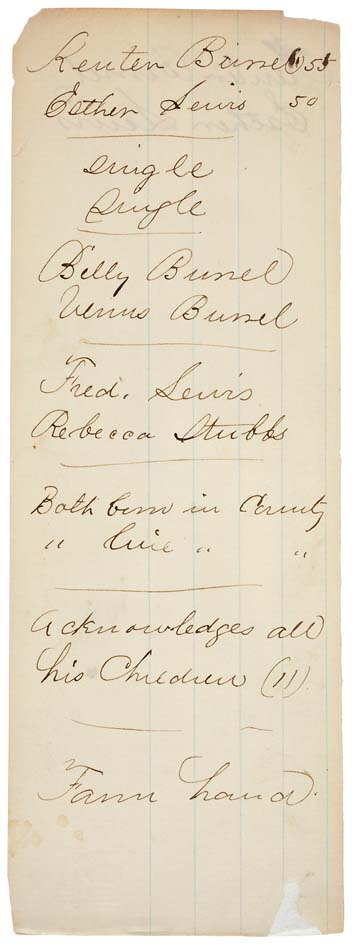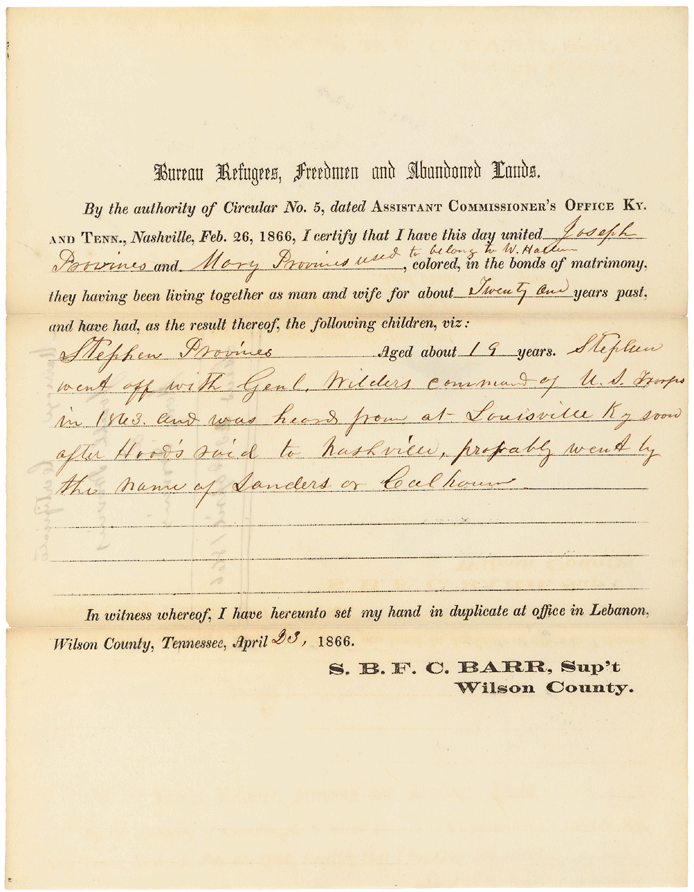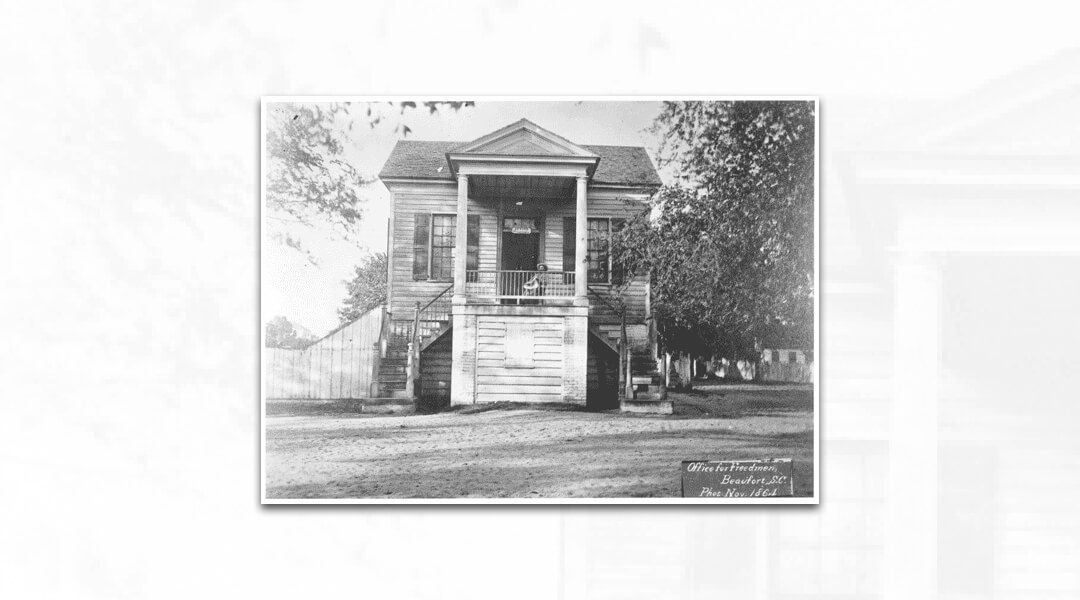The records from the Freedmen’s Bureau (1865-1872) are extremely valuable for researching some of the social, financial, and occupational transitions made by formerly enslaved African Americans after the Civil War. Their records include correspondence, reports (concerning educational, personal, health, and other matters), rosters, labor contracts, and more. In addition to revealing ancestral connections, these records can also help modern genealogists locate where their ancestors were once enslaved.
The Bureau’s aid extended beyond expanding access to vital services; they also increased formerly enslaved individuals’ access to social and legal processes. The Bureau both facilitated and recorded formal marital unions for free couples, even in areas that did not allow people of color to officially marry. Elaine C. Everly explains that though these records vary in number and consistency from state to state, they still document a wealth of information; prior to emancipation, any type of marital union was regulated by enslavers and likely unrecorded and unrecognized. Noralee Frankel further notes that the Bureau’s efforts to legally recognize these marriages allowed formerly enslaved women to access pensions and other formal assistance from the government, which in turn created more available documentation of their lives. Though these are both marriage records created through the Freedmen’s Bureau, the more standardized form came from Tennessee, while the informal, list-like marriage record came from Virginia. Regardless of the structure of the records, both contain pivotal information for genealogists, such as full name, birthplace, and family relations.



To either locate the Bureau’s records in digitized form (like the records above) or to find collection records online, researchers can search the National Archives and Records Administration’s catalog, or go to their Freedmen’s Bureau overview page. A number of other organizations also host images and records from the collection. This includes FamilySearch.org, a nonprofit that provides free access to genealogical records (with an account), and the National Museum of African American History and Culture through the Smithsonian, which utilizes crowdsourcing to help researchers comb through multiple Freedmen’s Bureau record sets at once. FamilySearch’s wiki (see: “United States Freedmen’s Branch Records”) provides extensive guidelines for using this page, including a collection overview, search guidance, and related articles. The wiki also includes an inventory for these records.
For articles regarding the Freedmen’s Bureau and the many, many functions that could not be covered here, the National Archives and Records Administration has compiled a list of resources for researchers that provide more in-depth information about the Bureau and its effects. You can also find more resources compiled by Carnegie Library of Pittsburgh’s Local History and Genealogy Librarian, Kelsea Collins-Vavreck here.
You can sign up for a free library card here. Check out our Genealogy Library Guide. If you have any additional questions, you can contact a librarian through Facebook, Instagram or Twitter. You can also call us at 412.622.3114 or email us at padept@carnegielibrary.org.

